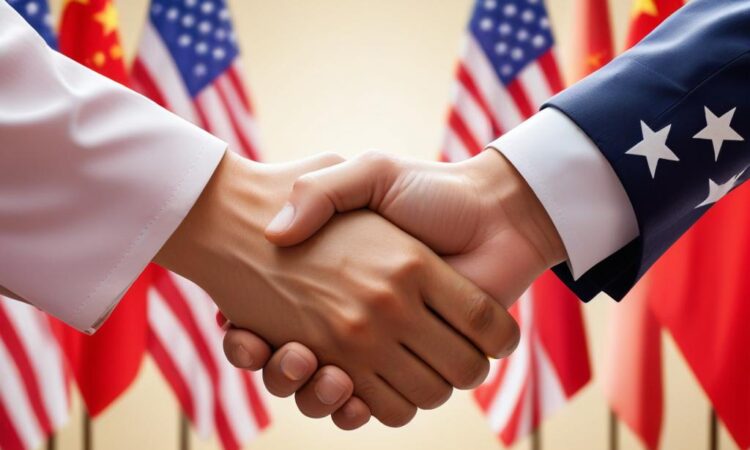China-US Relations: Tensions and Competition
China-US relations continue to be a significant geopolitical issue, with developments in trade, technology, and strategic alliances closely watched. The two countries are locked in a complex dance of cooperation and rivalry, driven by a multitude of factors, including:
Economic Competition
The United States and China are the world’s two largest economies, and their economic relationship is characterized by both interdependence and competition. Trade tensions have escalated in recent years, with the Trump administration imposing tariffs on Chinese goods and China retaliating with tariffs of its own. The Biden administration has signaled a willingness to work with allies to address China’s unfair trade practices, but it is unclear whether this approach will lead to a significant reduction in tensions.
Beyond trade, competition also exists in areas such as technology, investment, and infrastructure development. China’s ambitious Belt and Road Initiative, for example, has raised concerns in the United States about China’s growing economic and political influence in developing countries.
Strategic Rivalry
The United States and China have competing visions for the global order. The United States has traditionally advocated for a rules-based international system, while China has been pushing for a multipolar world with a greater role for itself. This difference in outlook has led to tensions over issues such as human rights, cybersecurity, and military deployments in the South China Sea.
The two countries have also been engaged in an arms race, with China rapidly modernizing its military capabilities. The United States has responded by strengthening its alliances in the Indo-Pacific region and increasing its military presence in the area.
Technology Competition
The United States and China are engaged in a fierce competition for technological dominance. This competition is playing out in areas such as artificial intelligence, 5G technology, and quantum computing. The United States is concerned about China’s efforts to steal intellectual property and its aggressive pursuit of technological innovation. This concern has led to restrictions on Chinese companies’ access to American technology and investment.
China, in turn, is seeking to develop its own technological capabilities and reduce its reliance on foreign technologies. This effort has been aided by government support and the rise of Chinese tech giants such as Huawei and Alibaba.
Strategic Alliances
Both the United States and China have been actively forging strategic alliances to counter each other’s influence. The United States has strengthened its ties with countries in the Indo-Pacific region, such as Japan, South Korea, and Australia. China, for its part, has deepened its relationships with countries in Africa, Latin America, and Central Asia.
These alliances have the potential to exacerbate tensions between the United States and China. However, they also provide opportunities for dialogue and cooperation.
The Future of China-US Relations
The future of China-US relations is uncertain. The two countries are deeply intertwined economically and strategically, but their competition is likely to intensify in the coming years.
Managing this competition will require careful diplomacy and a willingness to compromise. Both countries need to find ways to cooperate on issues of mutual interest while also managing their differences. The world’s future may well depend on their ability to do so.

